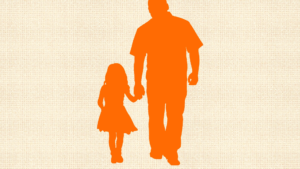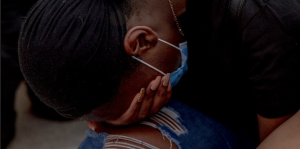“I soon learned that these two powerful phrases were guaranteed to get an instant reaction.”
My tween daughter loves to say, “I’m practically an adult.” At first I was flabbergasted. How could a 9-year-old feel so close to adulthood? After a few weeks of hearing her talk about getting older, I started complimenting my daughter’s good behavior by saying, “That’s so grown-up,” and I reacted to her bad behavior by saying, “You’re acting like a little kid.”
I soon learned that these two powerful phrases were guaranteed to get an instant reaction. When I praised her for acting “so grown-up,” she stood a little taller, but she also got a little bossier around her younger brother. When I criticized her for “acting like a kid,” she’d debate me on how an adult would act, and we’d completely lose sight of the situation that brought us there in the first place. I realized that these age-related phrases were making her defensive and triggering arguments, not helping her understand maturity. I decided to find out why these phrases were eliciting those reactions, and what to say instead as she eases into young adulthood.
A GUIDE TO HELPING YOU RAISE THE KIND OF PERSON YOU’D LIKE TO KNOW.
Parenting
Why Age Is So Triggering For Tweens
Tweens are in a developmentally challenging place. By age 12, they realize that their time at home is not going to last forever.
“Consciously or not, tweens start to think about preparing themselves for adulthood and becoming increasingly independent,” Lisa Damour, a clinical psychologist and the author of New York Times bestseller “The Emotional Lives of Teenagers,” told HuffPost.”They start to strive to be more grown-up and to be more self-sufficient.”
This manifests in different ways; your tween might make statements like “I’m practically an adult,” or they might head to Sephora to buy skin care products. Trying to be more mature is a natural and crucial part of development, and tweens take their budding adult status seriously.
“I think it’s really important to remember how fragile teenagers can sometimes feel,” Damour said. “They experience their emotions very intensely, and they take what we say to heart. We want to be careful if we are going to comment critically or even jokingly on their efforts to seem more grown-up because what could seem to us like a harmless comment could strike them as humiliating.”
Why We Tell Our Kids To ‘Grow Up’
As parents, we feel deeply invested in our kids’ behavior. Seeing your tween in public making a ruckus can easily spark a knee-jerk reaction. Saying “you’re acting like a little kid” or “can’t you just act your age?” might feel like the right thing, but this language can actually worsen behavior.
“One thing that is almost universally true of teenagers is that they live up to expectations and down to expectations,” Damour said. “Our feedback to them is critical.”
Damour’s advice to parents is to keep in mind that tweens have two sides: One is immature, impulsive and self-centered, while the other is mature, thoughtful and considerate. The side that we speak to is the side that we are going to see.
If you tell your tween, “You’re acting like a baby,” you are speaking to their immature side, and you will likely get an immature, petulant response like “you just don’t understand.”
Rather than criticizing their immature side, you can align yourself with their mature side by asking questions about their concerning behavior. You can say: “Hey, it’s not like you to be so impatient. Is everything OK?”
This approach also gives your tween an opportunity to think more carefully about their own behavior and reflect on more acceptable ways to handle their emotions. Your tween probably knows their behavior was wrong, and hearing it from you won’t help as much as a self-examination of their own actions. You can still point out their misbehavior, but position yourself as an ally who wants to understand what’s going on.
What Does ‘You’re So Grown-Up’ Actually Mean?
Telling a kid that their behavior is “so grown-up” takes the focus off their actual accomplishment and implies that acting like an adult is a more impressive achievement, said Carl Honoré, the author of “Under Pressure: Rescuing Our Children From the Culture of Hyper-Parenting.” It also suggests that being a tween is not good enough, and that they should shed the tween stage and rush into acting older.
“The implication is that being a tween is somehow immature,” Honoré said. “Anytime we use language like ‘you’re so mature’ or ‘that’s very grown-up of you,’ we’re falling into the trap of rushing them into the future. Children need to fully inhabit the stage that they are in, pushing into every corner of it, and when that stage is done they are ready to move on.”
Compliments set up goals for children. Every time your kid gets an A at school and you compliment their work, you’re reinforcing the goal of getting good grades. In the same way, if you make a glowing remark about your kid acting “so grown-up,” it sends the message that behaving like an adult is an important goal for them to achieve. The problem is that tweens are not quite ready to handle the full scope of adulthood.
Instead of complimenting their maturity, focus on specifically pointing out their good behaviors. Tell them exactly what they did to make you proud.
Giving Tweens Space To Grow
Modern parents tend to be very focused on their kids’ success. But it’s important to recognize that growing up is not a linear process, and it’s normal to experience ups and downs along the way. In an immensely competitive society, it’s easy to lose sight of the fact that our children are unique individuals. The secret is to give them the time and space to play freely, make mistakes and figure out who they are and how they fit into the world.
Of course, parents need to intervene when they see their tween doing something unsafe or mistreating another person, but there may also be times when stepping back and saying nothing can go a long way.
“The magic of child development is that it has its own rhythm,” Honoré said. “It’s messy and a little mysterious. But if you surrender to it, and give your children the time and space they need, they will flourish and come out the other end.”




